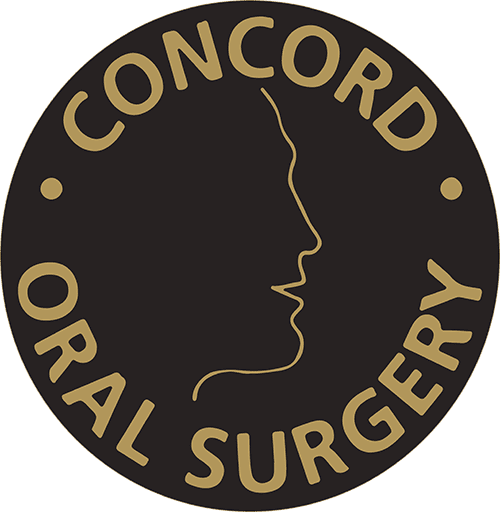Reviewed By Dr. Robert Barron, DMD
Reading Time: 3 minutes
If you have been exploring tooth replacement options, you have probably come across three options: dental implants, a dental bridge and dentures. To help you choose, here are five key questions to consider before deciding on the best solution for your smile.
Table of Contents
Key Takeaway
Dental implants give the strongest bite, preserve jawbone, and protect natural teeth for decades. Dental bridges work well if you need a faster, fixed option but may compromise neighboring abutment teeth. Dentures offer the quickest and lowest-cost solution, though you trade long-term stability, gum health, and bone support.
What Is My Long-Term Goal?
If your priority is long-term durability and function, dental implants are the closest replacement to natural teeth. A titanium post fuses with your jawbone and can support a crown, bridge, or denture for decades with proper care.
A traditional bridge can last 7–15 years but relies on the strength of the neighboring teeth, which must be reshaped to hold the bridge in place. If those teeth weaken, the bridge may need replacement.
Dentures offer a faster, lower-cost option, but they rest on the gums rather than the bone. Over time, the jawbone changes shape, causing dentures to lose their fit and require relines or remakes.
What Is My Budget?
If you are focused on upfront cost, dentures are usually the lowest-priced option, while dental bridges fall in the middle. Dental implants require a higher initial investment because they involve surgery and sometimes bone grafting.
However, your budget should also account for long-term value. Bridges may need replacement if abutment teeth fail, and dentures often require relines or remakes as the jaw changes. Implants, by contrast, are designed to last for decades, which can make them the most cost-effective choice over time.
How Important Is Preserving My Jawbone and Natural Teeth?
Preserving your jawbone and natural teeth is very important for long-term oral health. When a tooth is lost, the bone in that area naturally begins to shrink. Dental implants help prevent this by acting like artificial roots, keeping the bone strong while leaving neighboring teeth untouched.
Traditional dental bridges require reshaping the abutment teeth for crowns, which removes healthy tooth structure. Even less invasive options, like Maryland or resin-bonded bridges, still place stress on the supporting teeth.
Dentures rest on the gums rather than the bone, which not only leaves nearby teeth unaffected but also accelerates bone loss over time since they do not stimulate bone growth.
How Will This Choice Affect My Daily Comfort and Routine?
Your choice of tooth replacement affects how natural your smile feels and how much extra care is needed day to day. Dental implants function most like natural teeth once healed, you can brush, floss, and eat normally without changes to your routine. Implant-supported bridges also feel fixed and secure.
Traditional dental bridges are comfortable and stable, but they require special flossing tools to keep the area underneath clean. Dentures must be removed nightly for cleaning, may need adhesives for stability, and often require adjustments as the jawbone changes. Some foods and speech patterns can also be harder to manage with dentures.
Am I Prepared for Surgery and a Longer Timeline?
Choosing dental implants means committing to oral surgery and a longer healing process. It usually takes 16-24 weeks for the bone to heal, and more time may be needed if grafting is required. This option is best suited for patients who are comfortable with surgery and willing to wait for long-term stability.
If you prefer to avoid surgery or want results more quickly, a bridge or denture may be a better fit. Bridges can be completed in just a few weeks, while dentures are often ready even sooner. The key is weighing whether you want the convenience of a faster option or the stability that comes with implants.
Dental Implants vs Bridges vs Dentures
Each option comes with its own strengths and limitations. If you are trying to decide between implants, bridges, and dentures, it helps to look at them side by side. The chart below highlights the key differences in durability, comfort, cost, and long-term impact on your oral health.
| Factor | Dental Implants | Dental Bridges | Dentures |
| Durability | Can last for decades with proper care | 7–15 years | 5–8 years (with relines) |
| Bite stability | Highest, feels like natural teeth | Strong, but depends on abutment teeth | Lowest, can slip |
| Bone preservation | Yes, stimulates bone growth | No | No |
| Impact on neighbors | None | Requires reshaping healthy teeth | None |
| Comfort | Feels like natural teeth | Feels fixed | Can slip, requires adhesives |
| Hygiene | Brush and floss normally | Floss under bridge | Remove nightly and clean |
| Timeline | Longest, requires healing time after surgery | Moderate, usually completed in a few weeks | Shortest, often ready the fastest |
| Upfront cost | Highest | Moderate | Lowest |
| Long-term value | Designed to last decades with proper care | Lifespan depends on the health of supporting teeth | Frequent relines or replacements often needed over time |
Concord Oral Surgery’s Approach
When you visit Concord Oral Surgery for tooth replacement, your first step is a thorough consultation. We take the time to understand your goals, review your treatment options, and explain what to expect long-term. In many cases, we complete a CBCT scan during the same appointment so your treatment plan is based on precise 3D imaging.
If procedures like bone grafting, ridge augmentation, or a sinus lift are needed, we include them in your plan to ensure the most stable result. We also offer sedation and anesthesia options so you can feel comfortable and relaxed throughout your procedure.
Book a Consultation at Concord Oral Surgery
Schedule your consultation today to see which option matches your goals and budget. If you are considering dental implants and would like to learn more about the services we offer, call our oral surgery office in Vaughan, ON, at (905) 669-2616. We are located at 3300 Highway 7 West, Suite 805 Vaughan, ON.
FAQs
How many times can a dental bridge be replaced?
A bridge can usually be replaced several times if the abutment teeth remain healthy, but each replacement may weaken them further. Long-term stability often depends on whether those teeth can continue to provide support.
Can dental implants replace multiple teeth at once?
Depending on your needs, implants can replace a single missing tooth, support a bridge to restore several teeth in a row, or anchor a full set of replacement teeth for an entire arch. This flexibility makes them a reliable solution whether you are missing one tooth or many.
What is the difference between a traditional dental bridge and an implant-supported bridge?
A traditional bridge relies on the neighboring teeth for support. Those teeth must be reshaped and crowned to hold the bridge in place, which can weaken them over time. An implant-supported bridge is anchored by dental implants placed in the jawbone, so no healthy teeth need to be altered. It also provides more stability and helps preserve bone in the area.
Where can I find an oral surgeon who places implants near me?
If you live in Vaughan or the Greater Toronto Area, Concord Oral Surgery offers dental implant consultations and surgical placement with Dr. Robert Barron.

